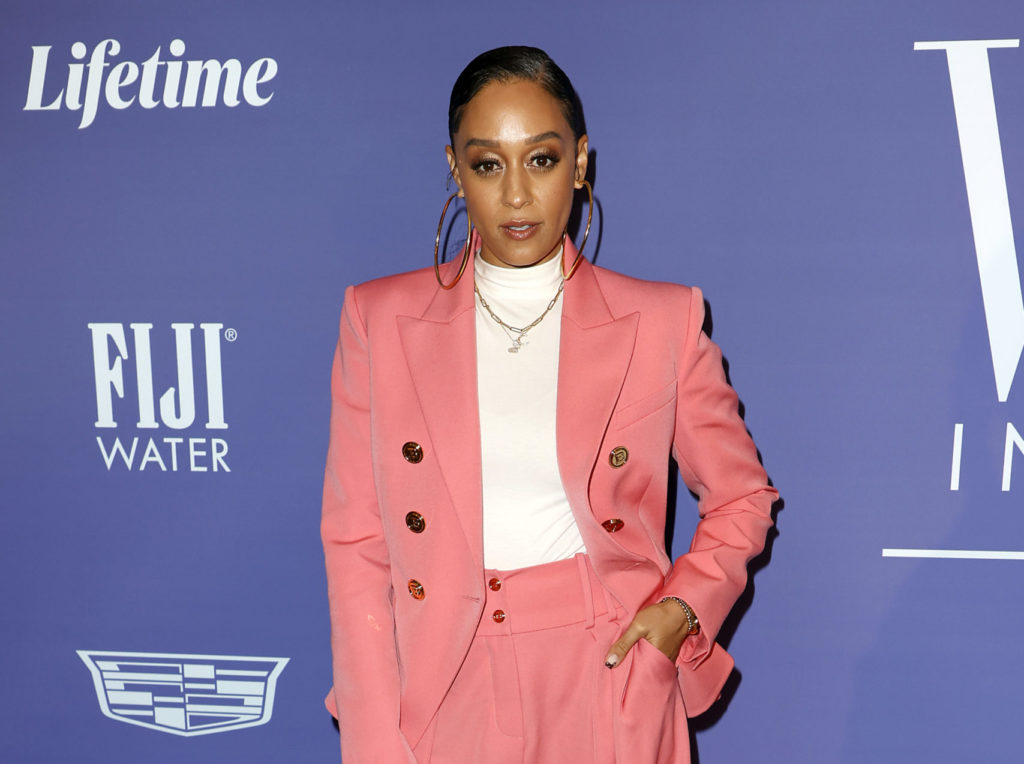
Tia Mowry has come a long way from her child actress days with her twin sister, Tamera on the hit show Sister, Sister. Now, Tia is married with two kids and is taking care of her beautiful family with cooking and motherly tips she shares on social media. One thing she wasn’t prepared for was a story she shared with PEOPLE about her skin issues. She shared it in hopes of raising awareness for those who might be suffering from eczema without getting properly diagnosed.
“Eczema is definitely a chronic condition that’s very prominent within the African American community but unfortunately, there’s a huge percentage of people suffering with eczema and it actually goes underdiagnosed,” she tells PEOPLE exclusively. “And that happens to be a part of my story. I’m definitely a part of that percentage.”
Mowry was diagnosed with eczema when she was in her 20s but says her journey actually began when she was a child, seeing her mother — and later herself — suffer from it without knowing what the condition was.
“When I was young, I had these round spots on my back on my arms, and they were raised and they were itchy,” Mowry reveals. “But when my mother would take me to the pediatrician, the doctor told us they were sunspots… and that was definitely not what I had.”
“I had an eczema flareup at the time and my hands were peeling like my mother’s [who also has the skin condition]. She’s a Black doctor, and she told me it was eczema and I didn’t even know. She was the one who referred me to a dermatologist and from there I was diagnosed.”
Black people are likelier to develop more severe forms of eczema than people of other ethnicities.
On black skin, eczema can cause darker brown, purple, or gray patches. The affected areas may be swollen, warm, itchy, and dry or scaly.
Many black people with eczema experience more extensive dryness and dark circles around the eyes than people from other racial backgrounds.
Having eczema around the eyes can cause people to rub or scratch the area due to itchiness. This can cause the skin to thicken and bumps to form. These bumps are called prurigo nodules.
After a flare-up, the affected skin may look darker or lighter than the surrounding area. With proper treatment, the color will usually return to normal over time.
Eczema can appear anywhere on the body, but black people are more prone to developing small bumps on the torso, arms, and legs. This is called papular eczema, and it may resemble permanent goosebumps.
These bumps can develop around hair follicles, which is called follicular accentuation.
Following her diagnosis, the actress says she “felt alone” because she didn’t know anyone else going through the same thing, specifically another person of color.
“It was overwhelming, especially being in the public eye, like how do you deal with this?”

The former Sister, Sister star says her newfound knowledge has even allowed her to take better care of her children — daughter Cairo Tiahna, 3, and son Cree Taylor, 10 — who also suffer from eczema.
Mowry explains that she was shocked to learn that the condition can be triggered by certain things and she’s realized what works best for herself compared to Cairo and Cree. She shares that for her, once she changed aspects of her diet, she “saw a huge shift and a change with my flare ups.”
For people with eczema, eating certain foods can trigger the body to release immune system compounds that cause inflammation, which, in turn, contributes to an eczema flare-up. An anti-eczema diet is similar to an anti-inflammatory diet.
Foods that may trigger an eczema flare-up and could be removed from a diet include:








